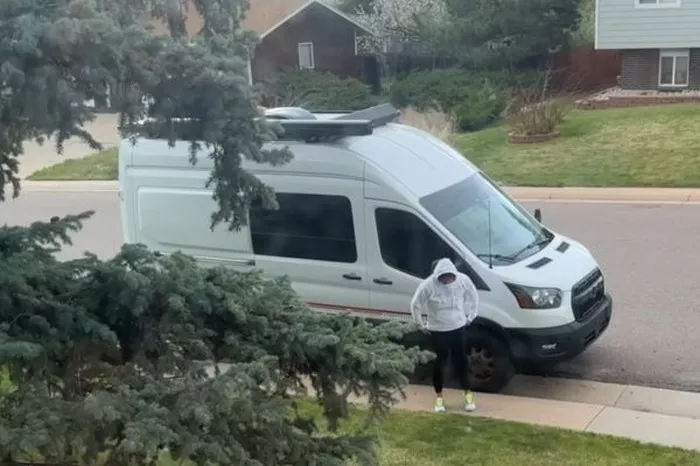“Stealth camping” refers to camping discreetly in urban areas, usually to avoid drawing attention and potential issues. It often involves parking in places like public streets or parking lots without attracting notice. There is a distinction between stealth camping for travel and leisure, and doing it as a means of full-time urban living. The advice here focuses primarily on the former.
Some full-time RVers seek “stealth campers” — vehicles designed to blend in without obvious camping features such as awnings, air conditioners, or large windows. A major concern for these campers is avoiding “the knock,” when authorities ask them to move.
The couple known as We’re The Russos have extensive experience with urban camping in RVs that are not designed for stealth. Over more than eight years, they’ve camped in a variety of places with different types of campers, including a 30-foot Class A towing a Jeep, Class B camper vans with air conditioning, awnings, and windows, and even a pop-up truck camper with canvas sides. They spent 6.5 years living full-time mostly outside of campgrounds, showing that stealth isn’t always necessary.
That said, “the knock” can and does happen. The Russos recall several instances where they were asked to move, such as at Walmarts in Las Vegas and Illinois, where policy changes or miscommunication led to their departure. They also mentioned an incident where a neighbor complaint brought parking enforcement to their mother’s house. Despite these experiences, they emphasize that getting “the knock” isn’t the end of the world.
For those aiming to camp stealthily in cities, common sense and good judgment are essential. Paying attention to signs, local regulations, and trusting your instincts will go a long way. It’s important to research parking laws, including any restrictions on oversized vehicles or no-parking hours. Being considerate is also crucial—avoid setting up outdoor furniture, loud music, or leaving trash behind. Choosing parking spots away from houses, such as side streets or less conspicuous areas, helps reduce attention.
If parking in a business lot, it’s best to ask permission inside and check apps like Allstays for camper-friendly locations. Talking to staff about acceptable overnight hours can prevent problems. Using a network of friends familiar with the area for recommendations can also be helpful. Having a backup plan in case you are asked to move is wise. If you have pets, taking them for a walk before settling in minimizes activity that might attract notice.
When visiting friends or family in neighborhoods with Homeowners Associations (HOAs), smaller campers like Class B vans might be allowed. It’s useful to have your host contact the HOA and share photos of your camper in advance. The more you practice urban camping, the easier it becomes, almost like a game of spotting suitable overnight spots.
Learning from others with similar experiences is beneficial. YouTubers like Scott Watson of Go Small. Live Large! who have camped in downtown areas can offer valuable insights for those interested in urban stealth camping.
Related Topics
- Authorities Warn Visitors Over Littering at Illinois River Fishing and Camping Area in Peru
- KP Government to Reopen Camping Pods at Tourist Destinations for Eidul Azha
- German Businessman Killed by Lioness During Safari Camping in Namibia

